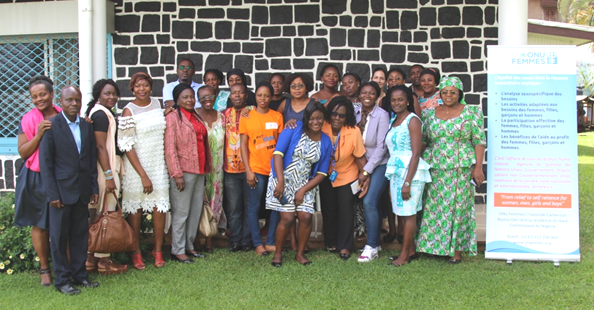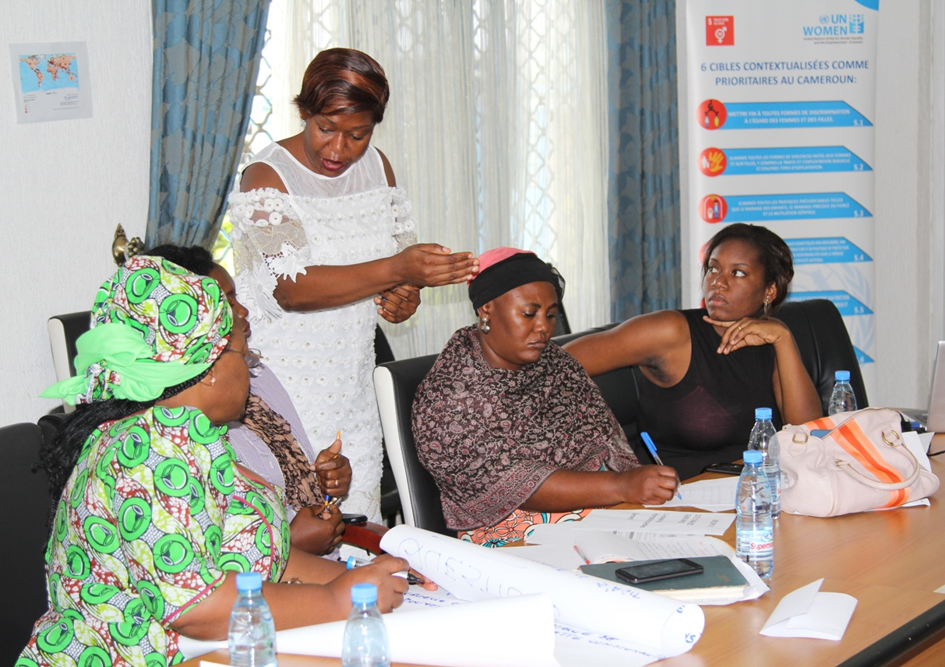35 Humanitarian actors trained on gender-sensitive humanitarian programming
Date:

Over 35 humanitarian actors in Cameroon have been trained on gender mainstreaming in humanitarian programming during a training of trainer’s seminar organized by UN Women from 8 to 9 of august 2019. The objective was to strengthen the capacities of the trainees on existing tools and mechanisms effective gender mainstreaming in humanitarian programming. The overall goal is for gender issues are effectively integrated into the process of developing the Humanitarian Needs Overview and Humanitarian Response Plan (HNO/HRP) 2020.
During the two days, gender and humanitarian experts from UN Women, UNFPA, WFP and the NGO Concordia, facilitated various modules that help trainees to better understand the concept of Gender, how it is perceived and experienced in society, what are its impacts and roots; but also modules on methods for transmitting knowledge to adults persons. These modules included gender-sensitive programming; gender, culture, religion and tradition; Inter-Agency Standing Committee (IASC) tools for gender mainstreaming in humanitarian response (Gender Handbook and Gender and Age Marker); gender-based violence and prevention of sexual abuse and exploitation; and methods for planning and preparing adult education.
The group work provided an opportunity for participants on one hand to assess a humanitarian project of "distribution of food kits to affected people in Cameroon's East Region" using the Gender and Age Marker to generate a score, and on the other hand, to improve it from the perspective of integrating gender criteria into needs' assessment, planning, implementation of activities, indicators and results.

At the end of this workshop, participants expressed their satisfaction and request that more training sessions be organized. For Eveline Ngwengi, from the Nutrition Sector, "It is imperative to improve communication around the gender concept, its target and its impact according to the environment and culture of the environment. So that the message is clearly perceived and can bring about real change." They also committed to share the acquired knowledge respectively within the organizations and sectors they belong, using their creativity and techniques from the Andragogical method of knowledge transmission.
This Training of Trainers represents one of the main recommendations made during both gender sector audits and gender focal point capacity assessment conducted in May 2019. Thus, the United Nations Gender Coordination now has a pool of 35 trainers who are equipped and competent to support gender mainstreaming in documents, assessments and activities within the sector.